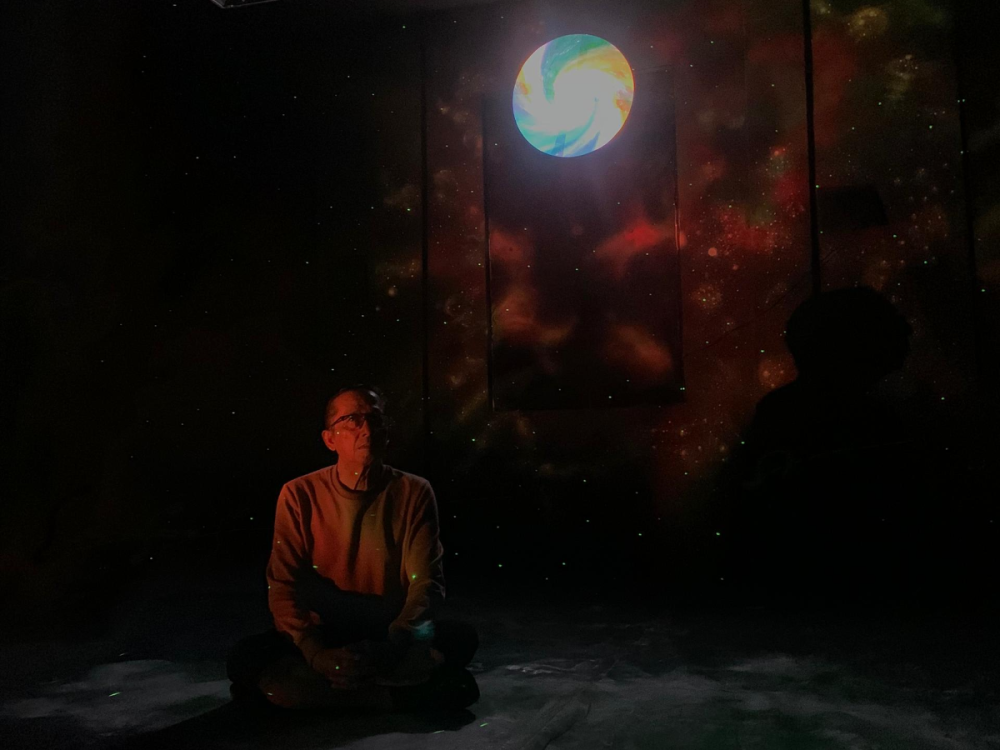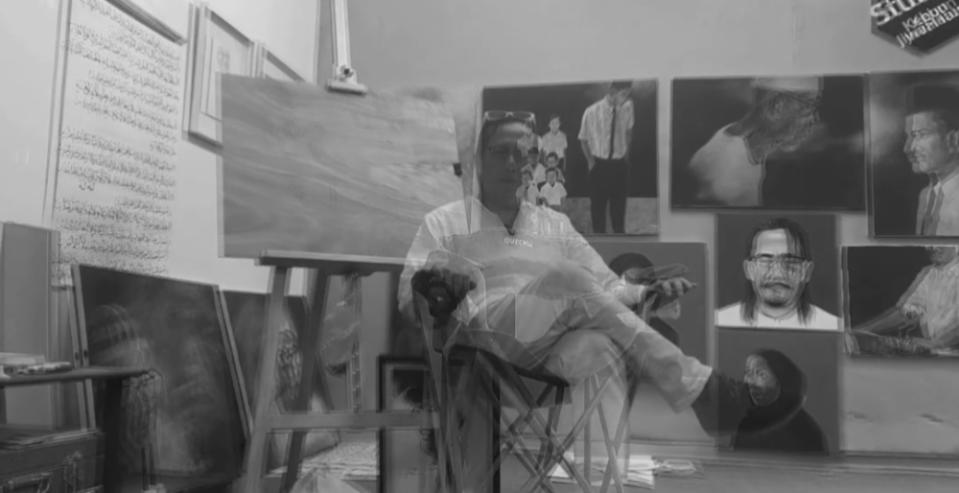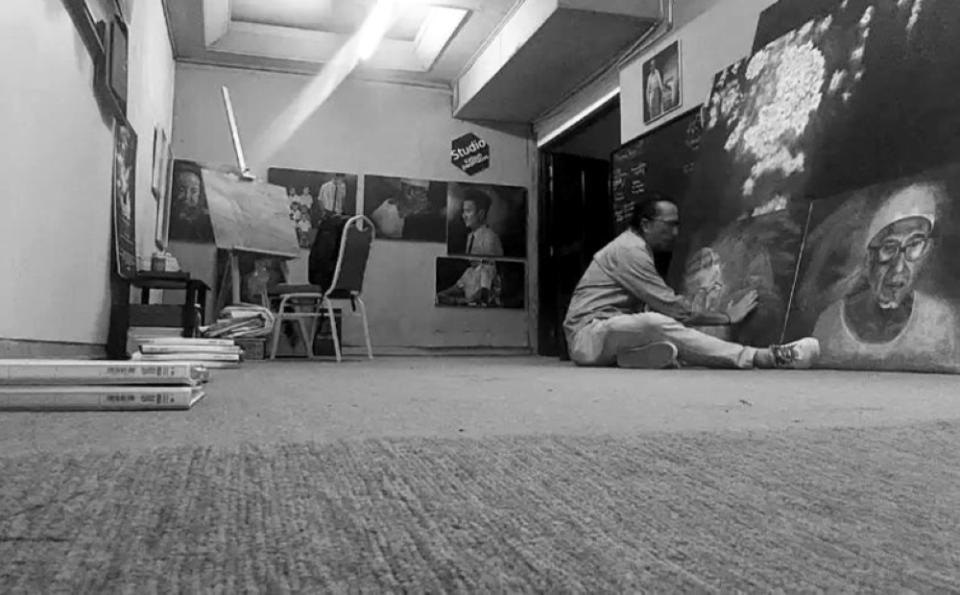Multidisciplinary artist Hasnul Saidon shares on on art and its power of healing

KUALA LUMPUR, June 11 — Meet Universiti Sains Malaysia (USM) Associate Professor Hasnul Jamal Saidon — a multidisciplinary artist and a pioneer in the local art and academic scene.
Having been in the art industry since the early 90’s, Hasnul has curated over 30 local exhibitions, engaged in 18 research projects and won numerous awards locally and internationally.
Amongst his most prominent exhibitions includes the 1st Electronic Art Show and HYPErview (1997), Takung (2004) and his ongoing multi-medium exhibition H3RO.
He was involved in designing pioneering art programmes in local universities including for Universiti Malaysia Sarawak, Universiti Malaysia Sabah as well as USM and is currently serving as the USM’s Tuanku Fauziah Museum and Gallery director.
The 59-year-old father of three however faced a predicament after being diagnosed with stage four kidney cancer - which brought about a new sense of realisation of his art-making process
In a conversation with Malay Mail, Hasnul opened up on how making art has been a crucial part of his healing process.

The process of making art has been a crucial part in Hasnul's journey to recovery from stage four kidney cancer. — Picture courtesy of Hasnul Jamal Saidon
A State of Silence
Hasnul first learned of his condition in March last year, and after going through nine months of medical treatments, he is now cancer free.
While treatment played its role, he also pointed out that taking care of the well-being of his state of mind was half the struggle, as facing cancer is not only a physical battle but an emotional one too.
For Hasnul, keeping a zen state of mind required him to always be mindful of his thoughts and emotions - and amongst the way he could control them is by being in a state of silence.
Being in a state of silence allows a person to be in a more relaxed state of mind.
For Hasnul, there are a couple of ways for him to achieve this with the first one through praying and second by making art - both of which allow him to be in a silent mode.
Hasnul also said that he would always find tranquillity or in Arabic, to be in a state of ‘khusyuk’ whenever he is deep in making art and that has helped him heal mentally.
“That’s how I face cancer. Yes, the doctors have helped from a medical perspective and I helped myself through these non-tangible paradigms.
“I take care of what I think and I take care of what I feel- the doctors cannot do that for you, only you can do that for you.
“That helps me to be healthy. It helps me to synchronise with the energy of the world, with the cosmic dance of creation, the vibration of the earth and with our true nature and art is a very instrumental part of it,” he said.
He added that his works such as the H3RO project and his upcoming SENADI project were amongst his remedies.

Hasnul with pieces from his H3RO project which has been ongoing effort for the last 10 years. — Picture courtesy of Hasnul Jamal Saidon
Deploying Love and Compassion
For the last 10 years, Hasnul has been deploying his H3RO project to local communities in non-conventional ways - from bringing his exhibition to schools and orphanages to doing shows by the beach or in villages around the country.
The project which centres around his parents consists of two short films, three to four songs and him sharing stories about his parents together with a slideshow of them with returning to love and compassion being the main essence of the project.
The project also includes an interactive session with his audiences who are mostly from the B40 communities to share their own experiences and Hasnul admitted his findings have humbled him.
Hearing about fractured families reeling from divorce and abuse, led Hasnul to conclude how it is important to nurture love and compassion in every household.
“If we want to take care of our future, we need to go back to this very fundamental relationship between children and parents, because that will determine the quality of a person they will become.
“Why I said it is fundamental is because our relationship with our parents influence how we face life.
“If you have issues, you need to make peace with the issue, we have to be compassionate enough and forgive and not many people do this,” he said.
Hasnul’s driving focus on love and compassion came to him a few years ago which started with a notion of ‘returning home’ and upon reflecting on the phrase, he then realised it was rooted to those two values.
He was further inspired to spread love and compassion through his arts because of Malaysia’s ageing population and the concerning outlook of mental health issues in Malaysia.
“There was a universal need for humanity to return to love and compassion because of what’s happening around the world and even in Malaysia.
“It’s about time we shift our focus rather than just focusing on material growth, we need to also look into our mental, emotional and spiritual health.
“And these subjective dimensions are where artists or people in the creative place can do something about and engage with people in a healthy way, in a way that can bring people to love and compassion and hopefully to heal,” he said.



